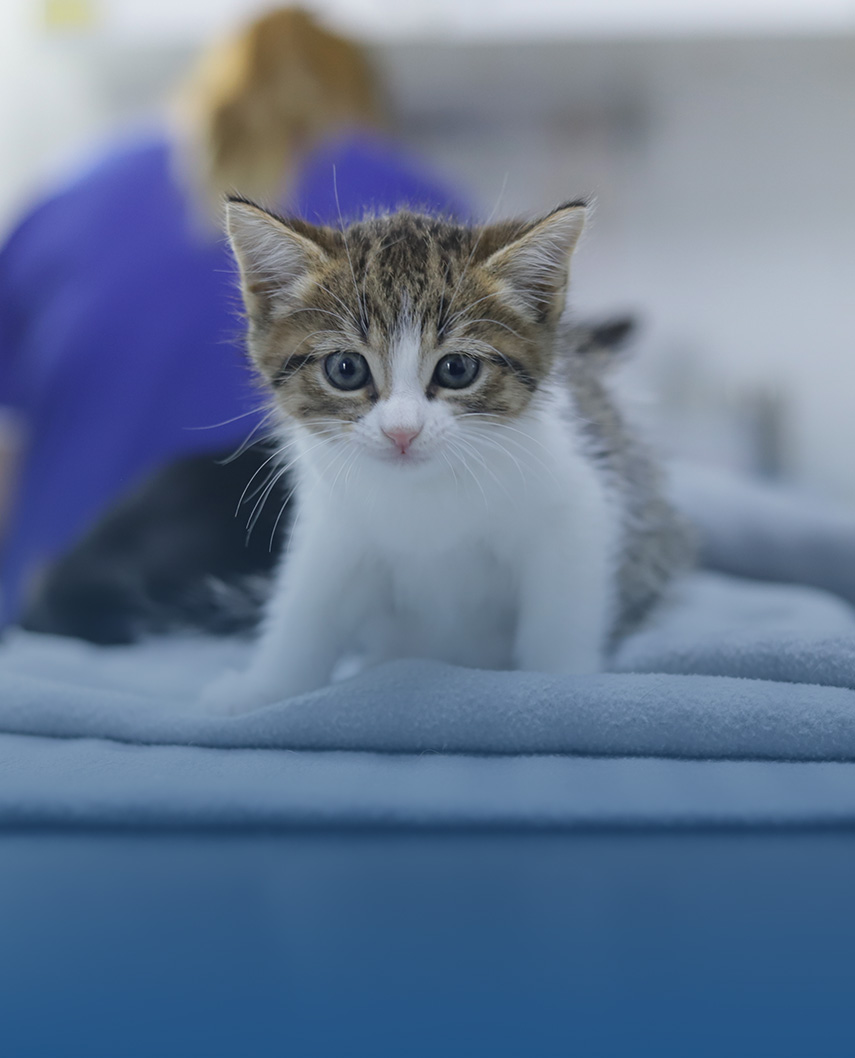Magnetic Resonance Imaging (MRI)
One of the most advanced and accurate diagnostic procedures used in medicine today is Magnetic Resonance Imaging (MRI). Blue Oasis Veterinary Clinic takes pride in being able to provide MRI for dogs, cats, and other small pets since early 2017, raise the diagnostic standard for pets, previously found only in human medicine.
Whether your animal is exhibiting neurological abnormalities and acute or chronic pain, undetected by other diagnostic methods, MRI gives precise views of the soft tissues of the body in cross-section—without even employing any radiation, like CT or xray do.
What Is a Veterinary MRI?
An MRI (Magnetic Resonance Imaging) scan employs a magnetic field and radio signals to produce very clear images of your pet’s internal anatomy, including the brain, spinal cord, muscles and ligaments. It’s particularly useful for diagnosing:
- Brain and spinal cord diseases
- Intervertebral disc disease
- Tumors or abnormal growths
- Strokes or nerve damage
- Joint and soft tissue injuries
- Middle-, Inner ear or nasal cavity pathologies
- Unexpected seizures or changes in behavior
Since it offers very high-quality images, MRI can identify conditions not observable by X-rays, ultrasound or CT scans. To even increase the accuracy of the diagnostic procedure, contrast media is injected into the vein in most of the cases to enhance the pathology.

How Does an MRI Work for Pets?
At Blue Oasis, we pair cutting-edge imaging technology with a caring approach to provide accuracy and comfort for your pet. Here’s what the process entails:
Sedation/light anesthesia
Your pet must lie perfectly still for 45 to 60 minutes during MRI scans. To maintain relaxation and safety, sedation/light anesthesia is used under the watchful eye of our professional staff. Your pet will be monitored very carefully at all times.
Magnetic Field Activation
Unlike CT or X-rays, MRI doesn’t involve the use of any type of radiation. Your pet will be put inside a magnetic field. The magnetic field aligns the hydrogen atoms in the body in a specific manner.
Radio Wave Pulses
Then, harmless radio-frequency pulses are sent. These pulses briefly disturb aligned atoms and produce distinctive energy signals, or “echoes,” which the MRI detectors capture and transform into images free from any superimpositioning.
Image Construction
The images are computer-processed using advanced software to produce highly accurate pictures of your pet’s internal tissues and structures. These pictures enable veterinarians to assess complex pathology with remarkable accuracy.
Complete Interpretation
After the scan is finished, the images will be reviewed by a veterinary radiologist or a neurologist and a report will be prepared—generally within 24-48 hours.
Frequently Asked Questions
Yes. Your pet will be kept stationary for the 45-60 minute process to take good-quality images. Sedation/light anesthesia maintains your pet’s safety and allows our staff to obtain precise diagnostic information.
Yes. It does not use radiation and is non-invasive and has no side effects known at present. It is used extensively in human medicine and more and more in veterinary medicine and ranks as one of the safest diagnostic instruments used today.
The actual MRI scan will be approximately 45 to 60 minutes long, although your animal will probably remain for 3 to 5 hours total time for preparation and recovery. We will keep you informed about the starting time and let you know when your pet woke up and can be taken home.
Most MRI results take 24-48 hours. In the case of emergencies, we can expedite the turnaround time (for an additional charge). Your veterinarian will discuss the outcome of the test with you and outline what the next steps might be if treatment is indicated.
The fee for an MRI scan may vary from AED 4,300 to AED 5,500 based on your pet’s size and the area to be scanned. We will give you a definitive estimate of the cost at the time of booking the MRI.
No. MRI employs a magnetic field and radio waves only—there’s no exposure at all to any form of radiation, and it’s perfect for pets who have ongoing conditions or repeat imaging requirements. This makes MRI particularly ideal for young and older animals alike and animals that need follow up scans.



